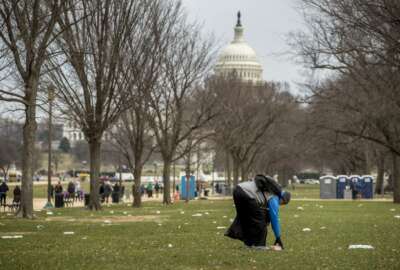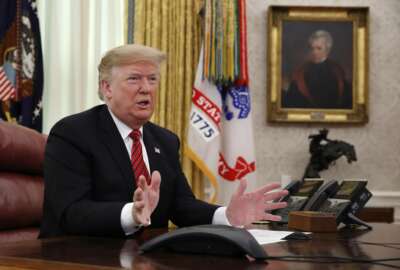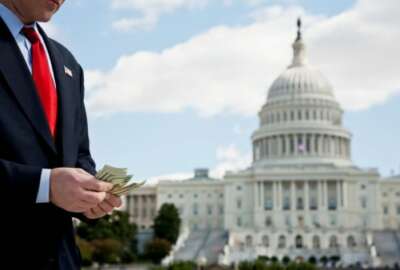
Can lawmakers really suspend their pay during the shutdown?
Lawmakers say they will withhold their pay, but is it constitutionally possible?
As the government shutdown continues, lawmakers are shooting off a lot of rhetoric about their own salaries from the federal coffers.
Reps. Dave Joyce (R-Ohio), Elise Stefanik (R-N.Y.), John Curtis (R-Utah) and French Hill (R-Ark.), for example, all wrote letters to House Chief Administrative Officer (CAO) requesting their pay be withheld starting Dec. 22, until the government reopens. The thought is to stand in solidarity with the federal employees who are not being paid during the shutdown.
Most congressional salaries clock in at $174,000 a year.
It’s unclear if the CAO can actually withhold pay. Officials there did not answer questions in time for publication.
But the politicians’ sentiments may be in conflict with the Constitution itself.
Article 1, section 6 specifically requires compensation for members of Congress. That differs from other federal employee pay, which is determined by Congress in annual appropriations bills and other statues. It could be argued that it’s unconstitutional not to pay members of Congress unless a law is passed forebidding it.
Then there is the 27th amendment.
The amendment is the nation’s newest to take effect, and is pretty short: “No law varying the compensation for the services of the senators and representatives shall take effect, until an election of representatives shall have intervened.”
That sentence means if lawmakers vote to change their pay, those changes can’t take effect until after an election. It’s meant to keep politicians from getting into office and then immediately padding their own pockets with a pay raise.
Other congressional members found more creative ways to spurn their salaries while some federal workers went without a paycheck.
A spokeswoman for Sen. Tim Kaine (D-Va.) said he will donate his pay during the period of the shutdown to charity if federal workers are not paid during the shutdown.
The most recent pay period ended before the shutdown, so federal employees were expecting to see a full paycheck on Dec. 28. To make that deadline, however, Congress would need to pass a law in order to pay employees who were furloughed during the shutdown.
Sens. Catherine Cortez Masto (D-Nev.), Michael Bennet (D-Colo.) and Mark Warner (D-Va.) said they will do the same as Kaine.
During the 2013 shutdown, The Washington Post reported 237 lawmakers pledged they would either ask the government to withhold their pay or donate their pay to charity.
The Post followed up with those lawmakers months later and found dozens of lawmakers went through with their donations, and 14 sent money back to the U.S. Treasury to pay down the national debt.
Lawmakers also want to cut luxuries of the office during the 2018 shutdown.
Rep. Bill Foster (D-Ill.) filed legislation to close the Capitol gym during the shutdown.
“Not only are Members still able to access the taxpayer-funded gym, sauna, and steam room while tens of thousands of federal employees remain furloughed, but janitorial staff are still required to clean the gym and restock it with towels and other ‘essential items,’” Foster said in a release last week.
Copyright © 2025 Federal News Network. All rights reserved. This website is not intended for users located within the European Economic Area.
Scott Maucione is a defense reporter for Federal News Network and reports on human capital, workforce and the Defense Department at-large.
Follow @smaucioneWFED
Related Stories





